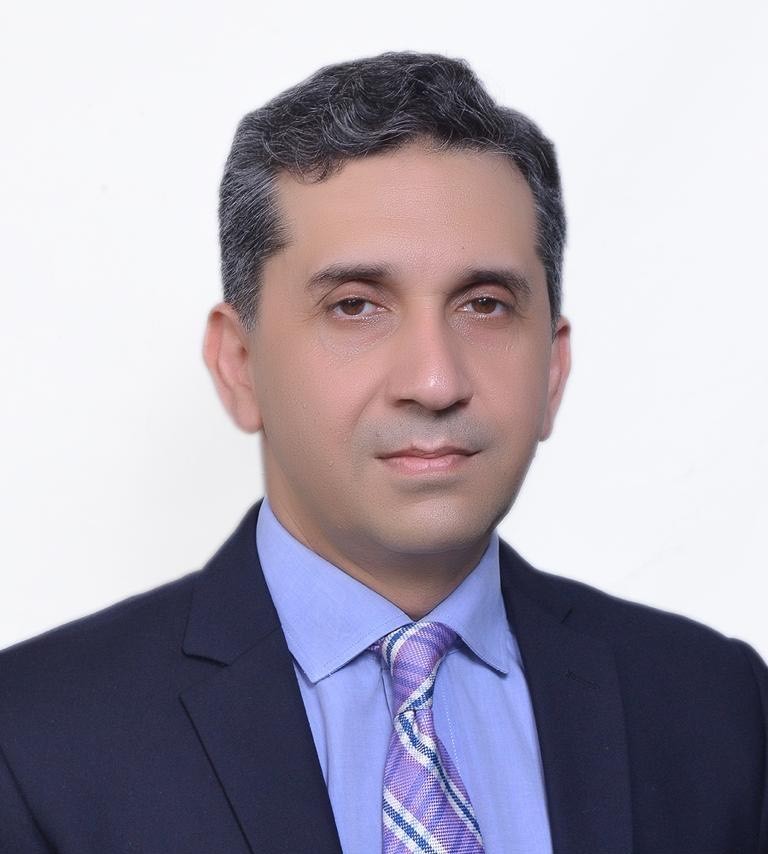Skills Lab

Message from Director Skills Lab
Introduction
The Skills Lab at AMC Rawalpindi was established in 2012 as part of the Community Medicine Department. With advancements in medical technology and learning techniques, the need for a dedicated skills lab became evident. In December 2022, a state-of-the-art Skills Lab was inaugurated, initially featuring a single hall with advanced manikins, accommodating workshops for 36 students.
In November 2024, the lab expanded with an additional hall, increasing capacity to 72 students. A key milestone came in September 2024 when the lab was accredited by the American Heart Association (AHA) to conduct Basic Life Support (BLS) courses & Advanced Cardiac Life Support (ACLS).
The lab also includes a fully equipped Advanced Cardiovascular Life Support (ACLS) room. Serving as a hands-on, simulation-based learning environment, it provides students with practical skills in a controlled, low-risk setting. Research shows that students trained in the Skills Lab exhibit improved exam outcomes. The lab allows students to practice core procedures like IV insertion, suturing, and resuscitation techniques, boosting confidence and exam readiness for Objective Structured Clinical Examinations (OSCEs).
Equipped with a range of advanced trainers, including ACLS, BLS, airway management, and other specialty trainers, the Skills Lab enhances students' clinical competence in various medical scenarios.
Outline of the Course
Objective:
To equip medical students with essential clinical and procedural competencies, enhance patient interaction skills, and prepare them for real-world medical practice through simulation-based and interactive learning.
Course Modules & Topics
- Basic Clinical Skills
- Hand hygiene and infection control
- Measuring vital signs (BP, pulse, respiration, temperature)
- Patient positioning and comfort
- Aseptic technique
- Basic history taking and physical examination
- History Taking & Communication
- Effective communication with patients and families
- Taking a comprehensive medical history
- Presenting patient cases clearly and concisely
- Cultural sensitivity and empathy in clinical interaction
- Delivering bad news (e.g., SPIKES protocol)
- Physical Examination Skills
- General physical examination
- System-based examination:
- Cardiovascular
- Respiratory
- Gastrointestinal
- Neurological
- ENT and Ophthalmologic exams
- Use of stethoscopes, otoscopes, and reflex hammers
- Procedural Skills
- Intramuscular (IM), subcutaneous (SC), and intravenous (IV) injections
- IV cannulation and fluid management
- Urinary catheterization (male and female)
- Nasogastric tube insertion
- Basic suturing techniques and wound care
- CPR and use of defibrillator (AED)
- Emergency & Resuscitation Skills
- Basic Life Support (BLS)
- Advanced Cardiovascular Life Support (ACLS)
- Airway management (bag-valve-mask, oropharyngeal airways)
- Recognition of shock and initial management
- Trauma assessment (ABCDE approach)
- Diagnostic & Monitoring Skills
- Blood glucose monitoring
- ECG recording and basic interpretation
- Pulse oximetry and oxygen therapy
- Surgical Skills (Introductory Level)
- Surgical hand scrubbing, gowning, and gloving
- Instrument identification and handling
- Knot tying techniques
- Professionalism & Ethics
- Confidentiality and informed consent
- Ethical decision-making in clinical scenarios
- Doctor-patient relationship and professionalism
- Reflective practice and feedback processing
- Clinical Reasoning & Decision-Making
- Formulating differential diagnoses
- Case-based learning with simulated patients
- Clinical judgment in ambiguous situations
- Integration of lab results into clinical context
- Simulation-Based Learning
- Simulated patient encounters (Standardized Patients - SPs)
- High-fidelity mannequins for emergencies
- Objective Structured Clinical Examinations (OSCE) practice
- Interprofessional team training simulations (e.g., code blue)
Assessment Methods
- Direct observation through checklists
- OSCEs (Objective Structured Clinical Examinations)
- Peer and instructor feedback
- Skills return demonstrations
Optional Certifications
- BLS & ACLS certification
- First Aid
- Infection control certification
- CPR and AED use
Our Faculty
1
Director Skills Lab
1
Deputy Director Skills Lab














